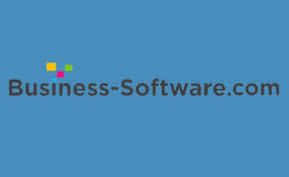ERP
A Dozen Reasons You Do Not Need a New ERP System

Most of the ERP literature today focuses on proper preparation, planning, and implemention of the system, and rightfully so. Nevertheless, sometimes the best way to avoid a train wreck is not to get on the train. In other words, do you really need a new ERP system and, if so, is now the right time to proceed?
This question is not always popular among the ERP zealots. In their mind, when you have a hammer in your hand everything looks like a nail. Not to rain on their parade, but sometimes it is necessary to bring some sanity to the decision-making process.
Make no mistake, there are plenty of good reasons to do ERP or replace your existing ERP system. The problem is when the ERP bandwagon starts to roll and no one in management is asking the right questions, those with legitimate business concerns get steamrolled.
Often, it is not even a fair debate. After all, in many cases those pushing for a new system tend to compare the very worst of the current environment to an idealistic ERP concept that at this stage is all things to all people. Senior management should ask the following questions before spending a considerable amount of time and money on a new ERP system.
- Will an ERP project be one of the top priorities within the company given other internal and external initiatives or events? The project must be the focus of senior management attention and internal resources in order to avoid costly delays and rework due to competing priorities.
- What is really broken, the current software or your business processes? Bad policies, procedures, measurement systems and cultural issues often have nothing to do with software, but a lot to do with poor business performance.The first goal should be to fix the business.
- Will the availability of “better information” actually result in better decisions and make lousy managers more effective? Systems never overcome poor management.
- What are the capabilities of the current system that are not utilized? Often the functionality within a new system looks appealing, but many employees are unaware that the current system is capable of doing the same thing.
- Is the promise of “new technology” always a good reason to throw out application software that tends to work just fine? Technology is great…as long as it solves business problems or does not create many new ones. Remember, the bleeding edge is a choice.
- Do we have bad software or just bad data? You have heard it before…garbage in, garbage out.
- Is everything about the current software terrible? It is common in certain areas of the business when a major step backward in software capabilities occurs as a result of a new system.
- Is the current software really on the brink of “not supported” by any vendor? After all, they have been saying this for years yet the system keeps running just fine!
- Can a few customizations or enhancements to the current software satisfy 80% of the important needs (for a fraction of the time and cost)? I know mods are a “no-no”, but sometimes they make perfect business sense.
- Can a few purchased “bolt-on” applications do the trick vs. buying an entirely new ERP package? Bolt-ons can be the answer when integration with the existing ERP package is not an issue.
- Are the perceived benefits and cost savings associated with new software real or fluff? If you listen to the software vendors and do not perform your own analysis in this area, the savings might be fluff.
- Have we considered all the implementation and support costs in the ROI? Many are not so obvious, but can have a major impact on the cost of ownership.
If outside help is required for this type of analysis, hire independent business system consultants (not an ERP consulting firm or any other vendor associated with an ERP package).
Want more on ERP Software? Discover and learn more about ERP software by exploring blog posts, whitepapers and more on our ERP resource page. For comparisons of the best ERP software, download Business-Software.com’s Top 20 ERP Software report.
Steven Phillips is an ERP professional with over 27 years of implementation experience. He is the author of the book “Control Your ERP Destiny”, one of the best selling ERP titles. The book is available at Amazon, Google Play, Apple iBooks, Barnes & Noble, Kobo and through many other international booksellers.






